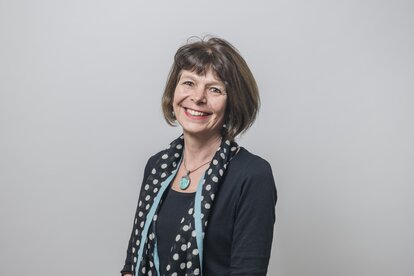Although no-one would describe the situation in the earthquake-affected areas as returning to normal, most households in Melamchi valley now have very basic temporary shelter and are supplied with blankets as well as chemical water purification. The increase in the number of households in the area is significant; re-calculated figures show there are some 20-30% more households than indicated in original records. However, all have been included in relief distribution.
Seed distribution
With high temperatures and monsoon rains still not set in, farmers in the valley were busylast week readying their fields for the rains once they arrive. Helvetas has distributed paddy seed (the variety, Khumal-4, in accordance with farmer preferences) in all seven ricegrowing village develompent commitees (VDC) of the valley. This will mean that the worries farmers such as Prabha Bhandari are lessened. Another worry – the repair of destroyed or damaged irrigation canals – is also being addressed; a full assessment of requirements has been made by one of our engineers, Prem Khadka, and work will commence shortly.
Hygiene/dignity kits
Hygiene kits have been distributed toall households in the VDCs of Mahankal, Ichowk, Palchowk and Duwachaur and will follow to the other VDCs shortly. These contain standard items such as a comb, soap, and washing powder, as well as sanitary provision for women having their period. Usual international practice is to supply sanitary pads, but these are unlikely to be familiar to all women. Many (especially older women) are used to simply binding themselves with old cloth during menstruation. Here sensitivity and awareness of generational differences is needed, as well as consideration of disposal issues. Finally the team has chosen to include in the packs a supply of soft cotton fabric that can be washed out and re-used. Menstruation is a difficult topic, in Hindu tradition, menstruating women are considered untouchable and “polluting” – meaning that they literally should not be touched; should not prepare food; and are supposed to sleep in a separate area, away from other family members. In the current circumstances, this is not so easy to enforce, and gives an opportunity to question such discriminatory practices – as is encouraged under our WASH programmes.
Back to school – or rather, to schooling
It is important for children to return to their schooling as soon as possible – not only for the learning in itself, but also on psychological grounds. Our team is working in collaboration with Caritas Switzerland in the establishment of Temporary Learning Centres (TLCs, see pictures by Caritas) in which children can continue their studies. In total, 33 are now operational for primary and secondary school students up to 10th grade (the level at which children sit their SLC, School Leaving Certificate). The students are mainly accommodated in tents, 70 of which have been erected.
One of the first activities in the collaboration with Solidar, funded by Swiss Solidarity (Glückskette), is the construction of school toilets. A full assessment of needs in six out of the eight Melamchi VDCs is complete, materials ordered; and toilets for the first two schools are now constructed.


